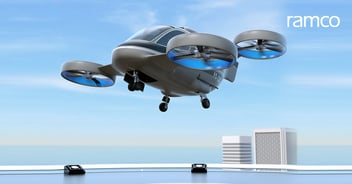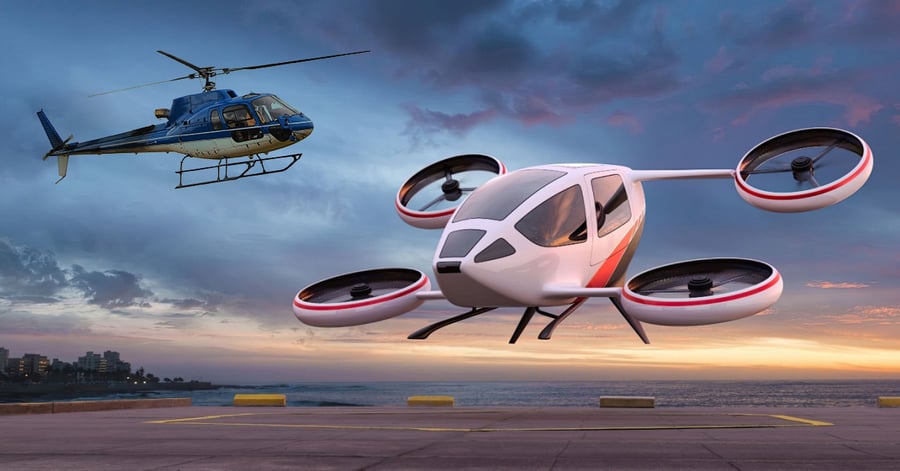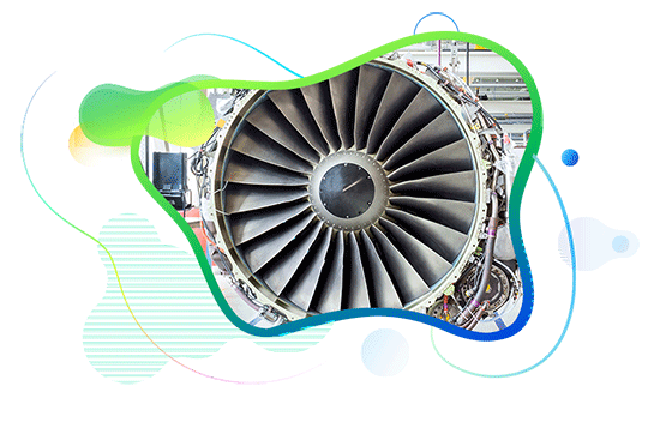
- Home
- Aviation
- Embracing Collaboration: How the Heli Industry and eVTOL Industry are Shaping the Future Together
Embracing Collaboration: How the Heli Industry and eVTOL Industry are Shaping the Future Together
Published :

In the early stages of the electric vertical take-off and landing (eVTOL) industry, there were concerns that this revolutionary mode of transportation would overshadow and potentially replace traditional helicopters. However, as the eVTOL industry continues to evolve, a surprising shift has taken place. Rather than perceiving eVTOLs as competition, many helicopter operators are now embracing collaboration by incorporating eVTOL aircraft into their fleets. Some of the examples include:
This blog explores the symbiotic relationship between the helicopter industry and the eVTOL industry, highlighting the benefits of this collaborative approach.
The advent of eVTOL technology has indeed raised questions about the future of the helicopter industry. With similar capabilities and the potential for greater efficiency and reduced environmental impact, eVTOLs initially seemed poised to disrupt traditional helicopter operations. However, industry leaders quickly recognized the unique advantages that both sectors bring to the table. Rather than perceiving eVTOLs as competitors, the helicopter industry has chosen to embrace them as complementary tools, ultimately redefining the aerial mobility landscape.
One of the key advantages of collaboration between the helicopter and eVTOL industries lies in the expanded operational capabilities it offers. While helicopters excel in certain areas, such as heavy-lift operations, long-range missions, and offshore operations, eVTOLs bring their own strengths, such as shorter-range urban air mobility and vertical takeoff and landing capabilities. By integrating eVTOL aircraft into their fleets, helicopter operators can access a wider range of operational options, enhancing their versatility and meeting the diverse needs of their clients more effectively.
Another significant benefit of the collaboration between the helicopter and eVTOL industries is the potential for improved efficiency and sustainability. eVTOL aircraft, with their electric propulsion systems, have the potential to significantly reduce carbon emissions and noise pollution. By incorporating eVTOLs into their fleets, helicopter operators can augment their existing operations with environmentally friendly aircraft, reducing their environmental footprint and enhancing their reputation as responsible industry participants. This synergy between traditional helicopters and eVTOLs fosters a more sustainable and environmentally conscious approach to aerial transportation, benefitting not only the industry but also society as a whole.
Collaboration between the helicopter and eVTOL industries also drives innovation and technological advancements. The shared knowledge and expertise enable cross-pollination of ideas, leading to the development of more sophisticated aircraft, advanced flight control systems, and improved safety measures. As helicopter operators embrace eVTOL technology, they contribute valuable insights and operational experience that can be leveraged to refine and optimize eVTOL designs. In turn, the eVTOL industry's rapid progress in electric propulsion, autonomy, and energy management inspires advancements in the helicopter sector. This collaborative environment encourages a continuous cycle of innovation, propelling both industries forward.
The collaboration between the helicopter and eVTOL industries represents a paradigm shift in the way transportation sectors approach technological disruption. By choosing to collaborate rather than compete, these industries unlock new opportunities, expand operational capabilities, improve efficiency, and promote sustainability. This partnership fosters innovation, contributing to the development of cutting-edge aircraft and systems that benefit not only the industry but also society at large. As the helicopter industry embraces eVTOL technology, a bright future of collaboration and progress awaits, transforming the aerial mobility landscape and shaping the future of transportation.

All Rights Reserved. © Copyright 2024. Ramco Systems.